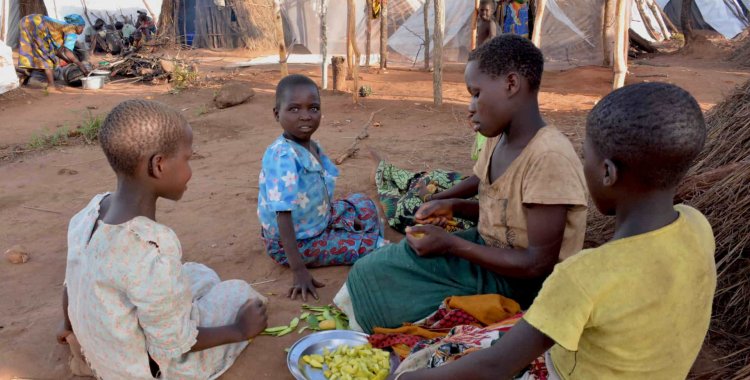According to the coordinator of the Pedagogical Influence Zone (ZIP) of Cunene province, southern Angola, Pelágio Ndafenongo Silikuvamwe, the heat, drought and hunger pose "great challenges in the organization of schools", mainly due to their dispersion.
It is necessary "to create models that are adequate and adapted to our reality, on the one hand, because we are experiencing a phase of food resilience, on the other hand, drought and drought and this makes us need to adopt strategies that are compatible with the local reality", said the official .
Pelágio Ndafenongo Silikuvamwe, who was speaking to journalists in Luanda, as part of a training event promoted by the Ministry of Education, reported that 70 percent of schools in Cunene were built precarious or under trees.
The coordinator of ZIP Cunene also made it known that the province has enrolled close to 300,000 children in the current 2021/22 school year, but, as a result of constant population mobility, dropouts have already reached around 40 percent.
The number of student dropouts "varies between 35 percent and 40 percent in some communities, which is quite worrying because of the food resilience situation."
"We have verified these dropouts because of the situations we have been experiencing, fundamentally hunger and drought, which leads many children to move from one community to another and there has also been many dropouts there," he stressed.
Cunene is one of the southern provinces most affected in recent years by the long drought and drought, a situation that contributes to the constant mobility of populations, including to Namibia, in search of means of subsistence.
The Government is carrying out several actions, such as the construction of structural projects and the distribution of water and food to the population, with a view to counteracting the current drought scenario.
The "weak adherence" of students to schools, justified Pelágio Ndafenongo Silikuvamwe, results above all from climate problems, which have reduced the possibility of communities having access to water.
"And many times, sociocultural problems make these school-age children subject to long distances to go to transhumance, to accompany the cattle for food and to search for water", he pointed out.
For the official, the construction of "itinerant and evolving schools", especially for primary school students, should respond to the current dispersion of the population and address the abstention of students in many schools with more than five classrooms.
"It is a suggestion that we are going to take to the highest level in order to be able to analyze it, so that at the time of building schools they are adapted to the local reality for greater use and rationalization of resources", concluded the director.
About 40 percent of children in Cunene have dropped out of school due to drought
About 40 percent of children have dropped out of school, in Cunene province, due to drought and famine in the region, which leads to “population dispersion that seeks subsistence”, an official source announced.







